Exposing the orchestrators of mass killings in Bangladesh: The reality of 'disposable' lives
-66ad5328d04c8.png)
Photo Credit: Nazmul Islam
In recent weeks, the people of Bangladesh have been enduring widespread atrocities under Sheikh Hasina’s authoritarian regime. The violent crackdown on students protesting for reforms to the quota system in government jobs has sparked civil unrest across the nation.
The death toll has surpassed 200, with thousands injured and nearly 10,000 detained. According to an investigation by Prothom Alo, the most widely read newspaper in Bangladesh, 75% of those killed were young adults, teenagers, and children, including at least 45 students from various universities, colleges, and schools.
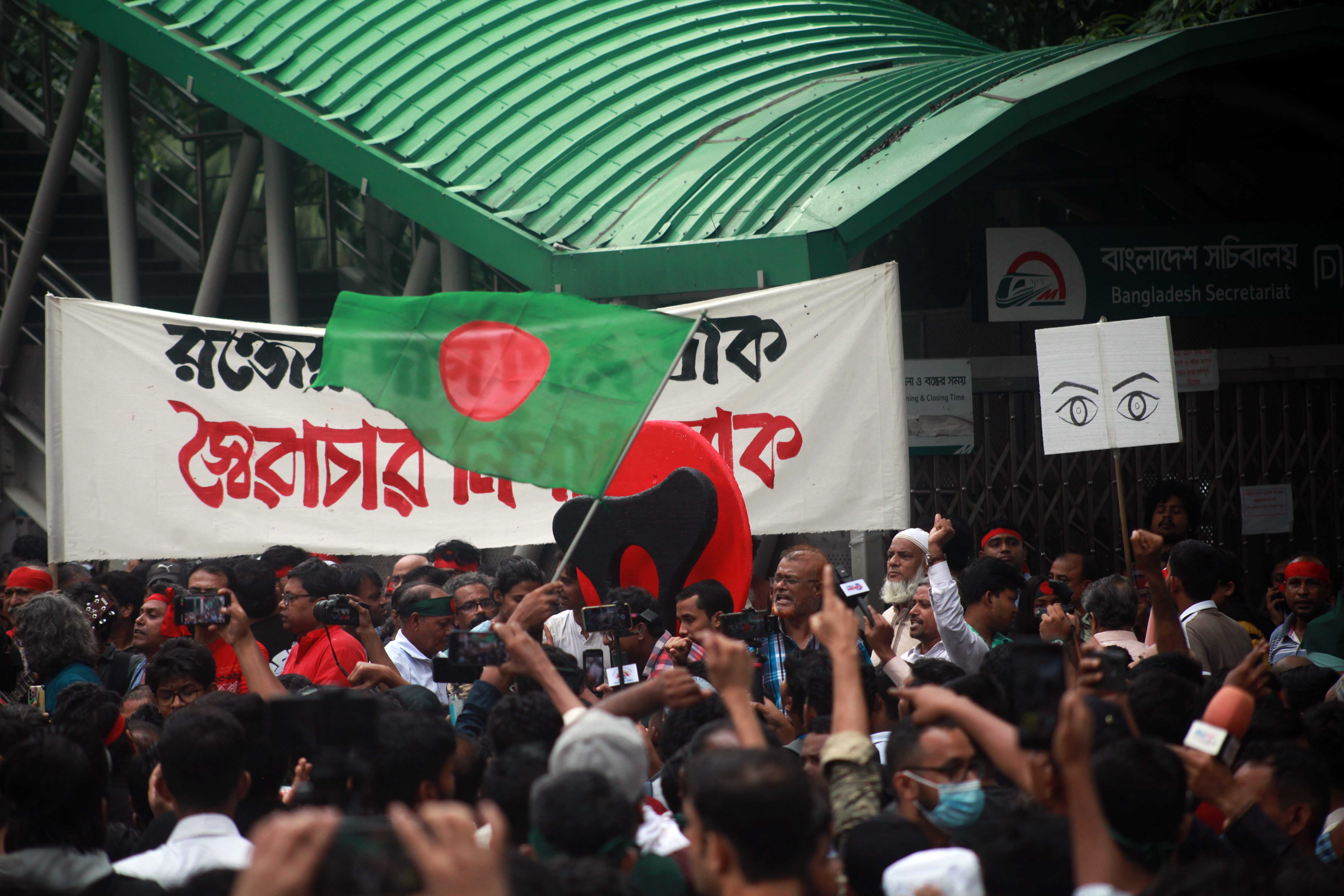
Lethal force was employed against the unarmed protesters, with many shot at point-blank range. On July 18, the government enforced a complete internet shutdown, creating an “information blackout” for 11 days. A nationwide curfew, along with a “shoot-at-sight” order, was enacted on July 19.
The level of brutality displayed by the police and the ruling Awami League has reached unprecedented heights in Bangladesh's history. But how is it possible to kill hundreds of people so swiftly?
In other words, how have lives become so readily "disposable"? For those unfamiliar with the political climate and authoritarian mindset of the current regime, this may be perplexing.
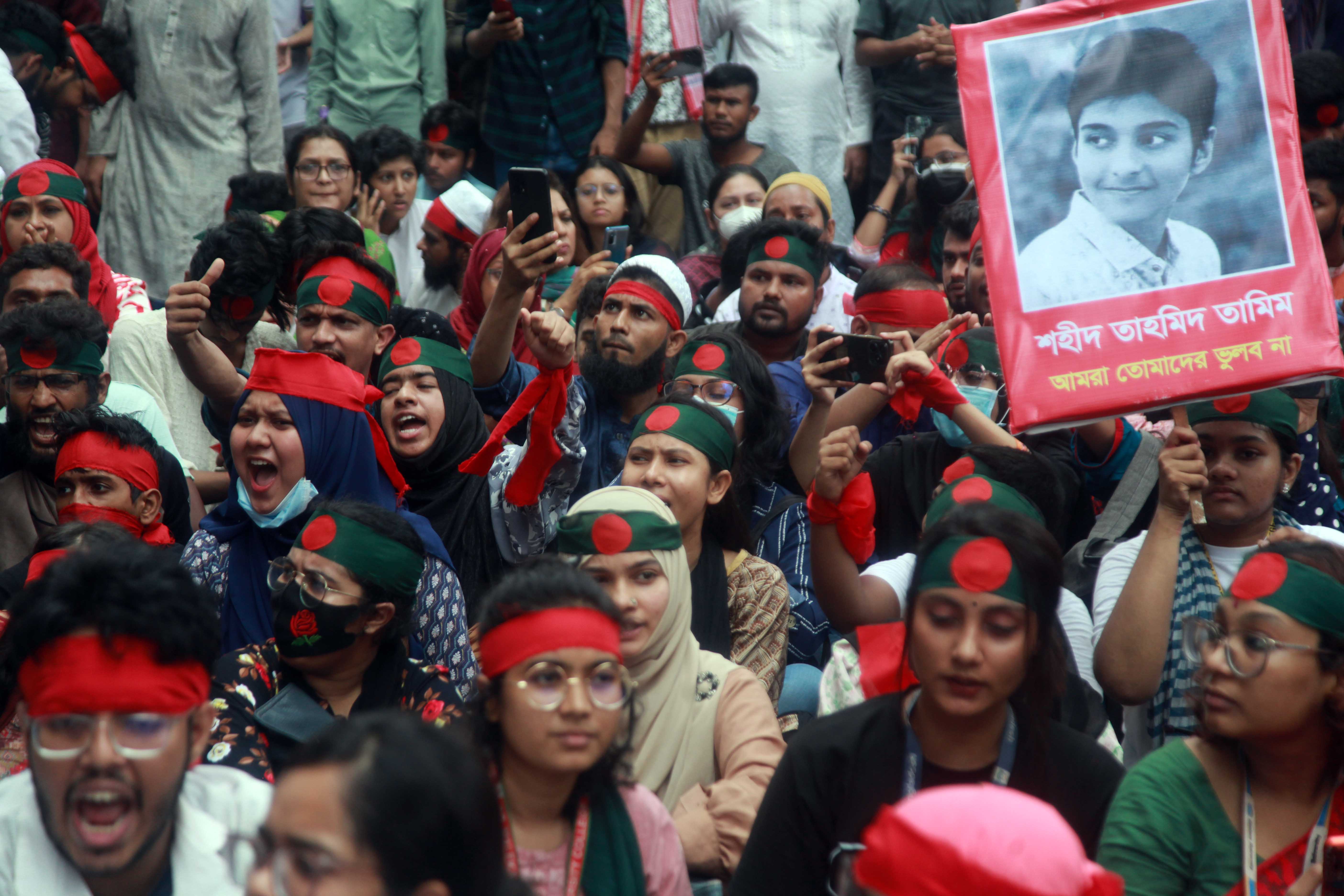
Decoding why lives are disposable to AL?
To understand this, consider the comments made by officials from the ruling Awami League. From the outset of the peaceful protests, these officials attempted to portray the demonstrators as “intruders.”
According to them, these “intruders” are associated with the BNP (Bangladesh Nationalist Party), JI (Jamaat-e-Islami), and other “terrorists.”
On July 25, Mohammad Arafat, the state minister for information and broadcasting, told Al Jazeera that “third-party” actors, including “terrorists” and “extremists,” were responsible for the unrest.
He clarified, “We are not referring to the students as terrorists and anarchists. It is the third party, those who intruded into this movement and started all this.”
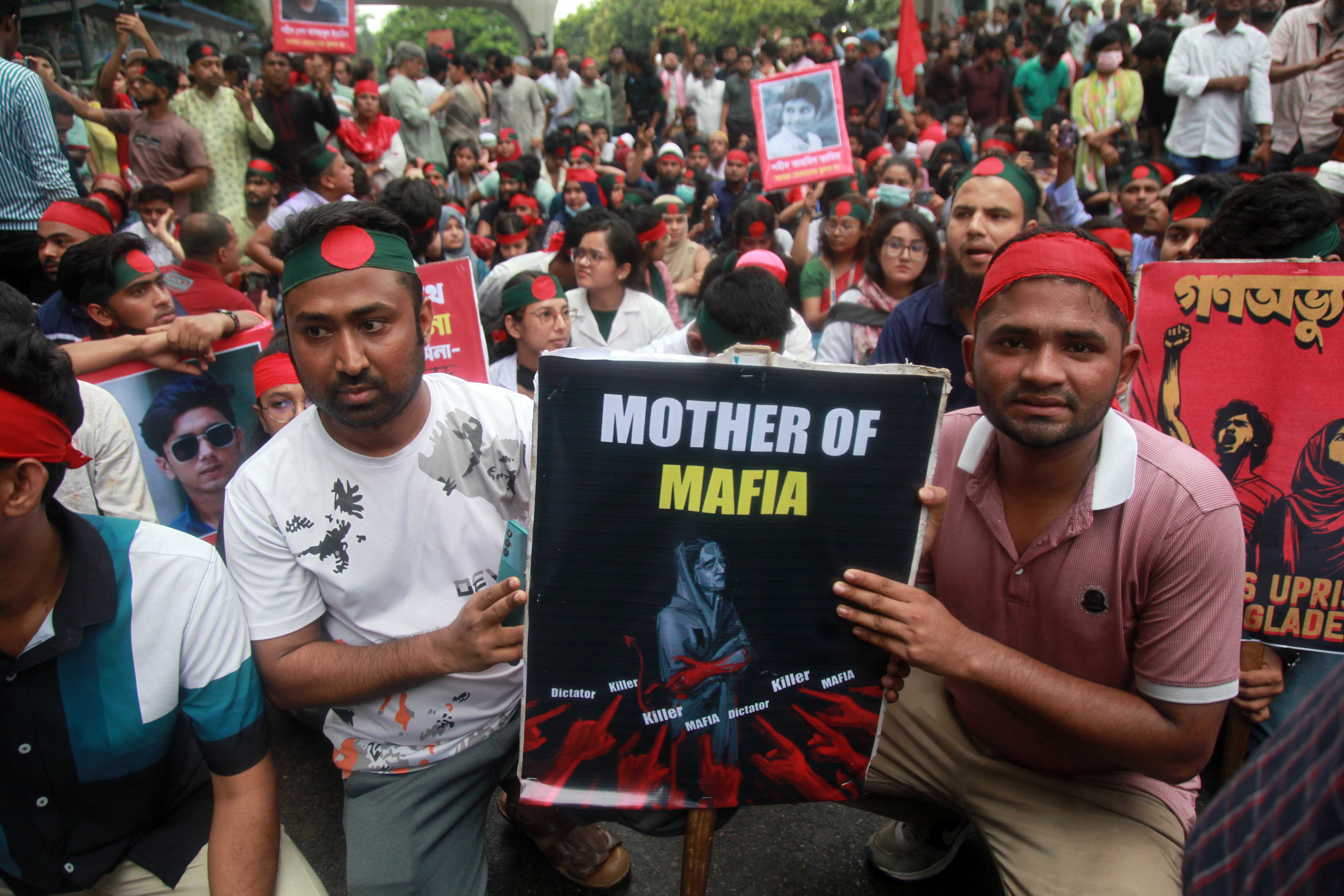
So, who are these “third parties” Arafat is talking about? In his interview, he identified BNP-Jamaat and “terrorists” as the “third parties.
This narrative is not new under Sheikh Hasina’s autocratic regime; she has previously blamed these same groups for uprisings and pledged to continue suppressing them to create a “better environment.”
Historian Achille Mbembe, in his work Necropolitics, explores how life becomes disposable within the framework of necropower, which stems from the state's claim to legitimacy and sovereignty based on its own narrative of history and identity.
To maintain absolute control over this narrative, a state wields the power to determine who is significant and who is expendable.
(1)-66ae5dfa3f1f9.jpg)
Examining the ruling Awami League's narrative, we see their “unquestionable” authority over the history of Bangladesh’s 1971 liberation war.
Those who oppose the regime are labeled as descendants of razakars or anti-liberation forces aiming to hinder the country's development, while the Awami League is portrayed as the sole pro-liberation entity with a “divine” right to govern.
When students peacefully protested for quota reform, Sheikh Hasina once again used the derogatory term "razakars" to dehumanize the protesters, intensifying the movement.
She questioned, “Why do [the protesters] harbor so much resentment towards the freedom fighters? If the grandchildren of freedom fighters don't receive quota benefits, should the grandchildren of razakars?”
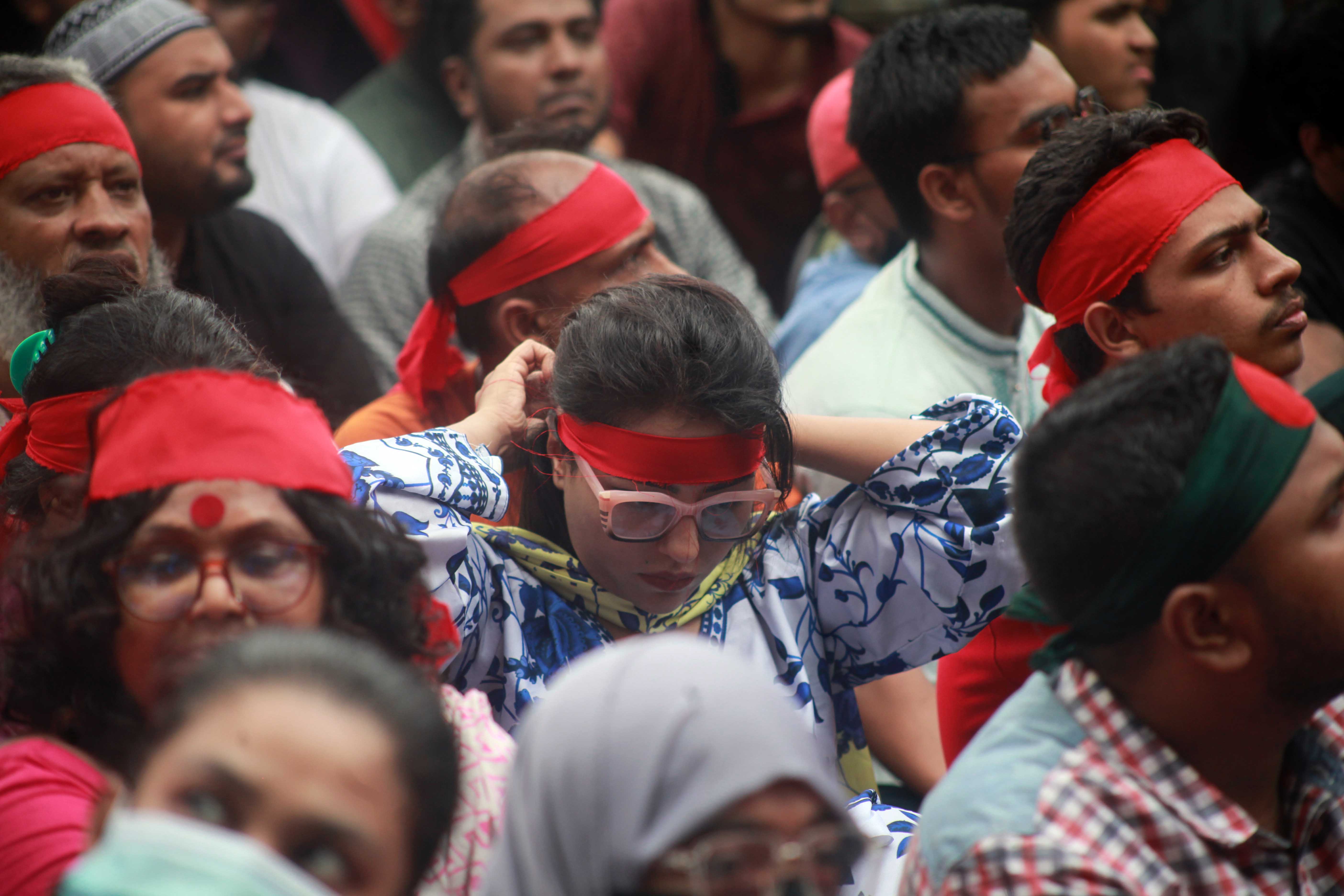
However, immediately following Hasina’s statement and the coordinated violence by the Awami League and security forces, the quota reform protests escalated into widespread civil unrest.
Why has quota reform turned into mass unrest?
Rezaul Karim Rony, a Dhaka-based journalist, told Al Jazeera that ordinary people joined the students spontaneously, driven by the pent-up anger towards Sheikh Hasina’s autocratic regime.
The student-led protests became a platform for expressing broader dissatisfaction. Renowned photographer Shahidul Alam notes that the state's violence has pushed the movement to call for the end of the current autocratic regime.
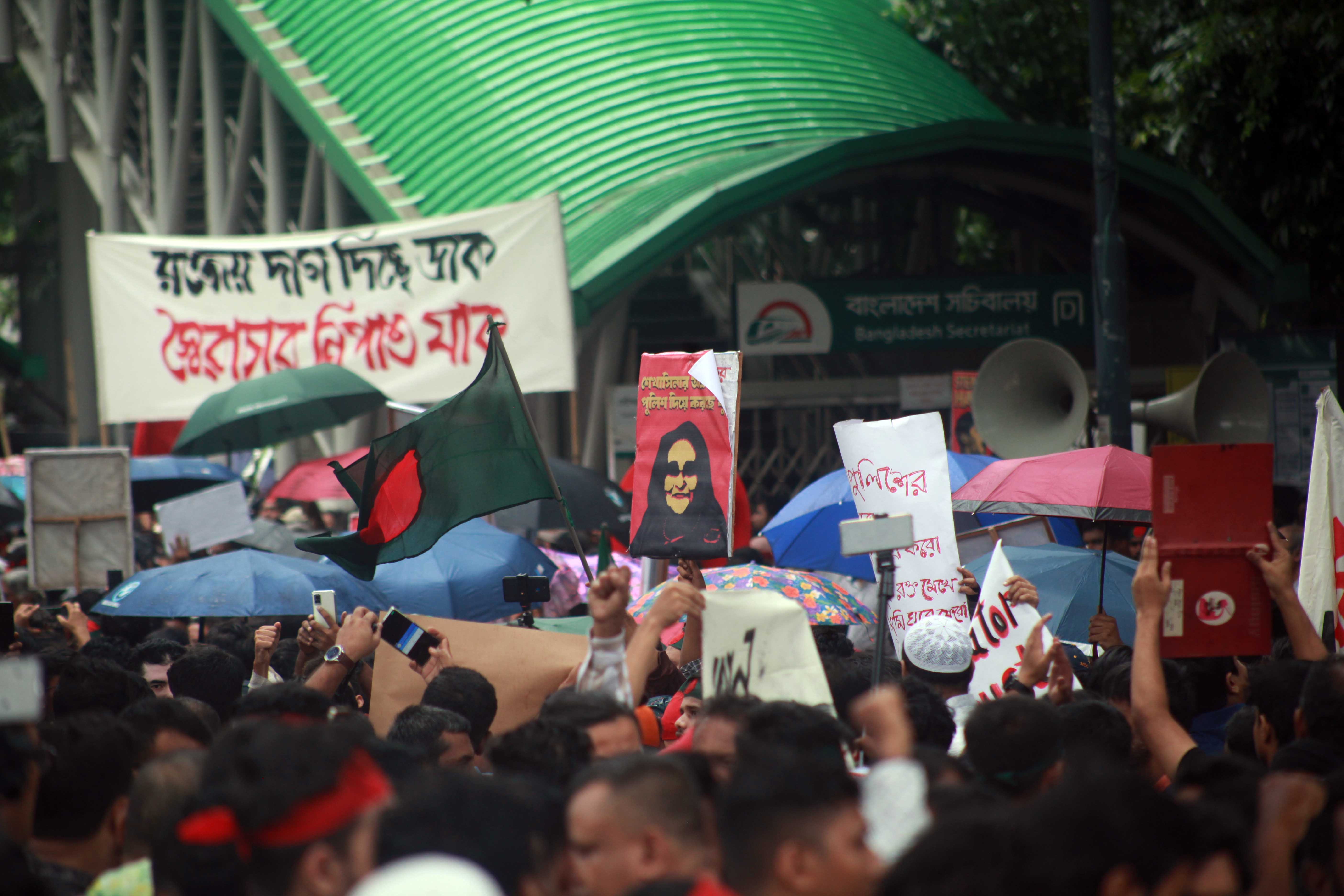
Slogans such as “Tui ke? Ami ke? Razakar, Razakar! Ke boleche, ke boleche? Soirachar, Soirachar!” (Who are you? Who am I? Razakar, Razakar! Who said? Who said? Autocrat, autocrat!) and “Chaite gelam odhikar, hoye gelam Razakar” (We demanded our rights, but we became Razakars) directly challenged the Awami League’s previously uncontested narratives of history and identity politics, and its claimed divine right to rule Bangladesh.
This moment underscored how even non-partisan urban students became "disposable" in the eyes of the regime.
Obaidul Quader, the Awami League's general secretary, confirmed that the government had issued “shoot-on-sight” orders during the nationwide curfew, leading to hundreds of deaths, with many killed at point-blank range or from helicopter gunfire.
-66ae5e7577616.jpg)
American psychologist Herbert Kelman, in his work Violence without Moral Restraint: Reflections on the Dehumanization of Victims and Victimizers, outlines three interconnected processes that provide a form of “moral justification” for sanctioned massacres: authorization (official directives that remove individual moral responsibility), routinization (systematic actions that bypass personal moral considerations), and dehumanization (ideological indoctrination that justifies atrocities against victims).
The dehumanization process evident in the July massacres in Bangladesh is reflected in the Awami League and law enforcement agencies' persistent labeling of the protesters as “third party,” BNP, Jamaat, and “terrorists” intent on “destroying” the country. Consequently, this narrative portrays the Awami League, under the leadership of Sheikh Hasina, as a necessary force acting to “protect” the nation through what they deem “necessary” violence.
Not the first instance
This is not the first instance of Sheikh Hasina’s regime carrying out “necessary” atrocities against the people of Bangladesh.
-66ae5eef7a7e3.jpg)
In March 2021, the non-partisan Islamist group Hefazat-e-Islam protested against Indian Prime Minister Narendra Modi’s visit to Bangladesh. According to an Amnesty International report, police and Border Guard Bangladesh (BGB) used “unlawful, unnecessary, and excessive force” to suppress the peaceful demonstration, resulting in at least 14 deaths and hundreds of injuries.
Similarly, in May 2013, Hefazat-e-Islam faced severe violence from government agencies during their attempt to “siege Dhaka.” Human Rights Watch reported that at least 58 people were killed during this period, with the possibility that the death toll was even higher.
Over the past decade, opposition parties such as the BNP (Bangladesh Nationalist Party) and JI (Jamaat-e-Islami) have frequently been subjected to violent attacks by the Awami League, police, and RAB (Rapid Action Battalion) during their democratic protests for free and fair elections. Hundreds have been detained, and extrajudicial killings of opposition members have been widespread.
-66ae5f0d83cb5.jpg)
Netra News reports that between 2009 and 2022, at least 2,597 people were killed extrajudicially by various security forces. Due to these serious human rights violations, including extrajudicial killings, custodial torture, and forced disappearances, the United States imposed sanctions on RAB and some of its high-ranking officials.
Ahead of the 2024 election, which cemented
Sheikh Hasina’s fourth consecutive term as Prime Minister of Bangladesh, nearly
ten thousand political activists were arrested on false charges.
At least 16 activists were killed, and over
5,500 were injured due to the violent pre-election crackdown. These incidents
illustrate how lives have become “disposable” under this regime. The ruling
Awami League and its allied intellectuals have dehumanized any opposition,
thereby “morally” justifying their orchestrated violence.
-66ae5f3c878aa.jpg)
For instance, Mizanur Rahman, former chairman of the National Human Rights Commission of Bangladesh, described the BNP as “extremist” in a 2023 speech in London.
He claimed that foreign powers are attempting to integrate “extremists” (i.e., BNP) into the political mainstream. Rahman stated, “Isolating popular extremists, specifically the Bangladesh Nationalist Party and Jamaat-e-Islami in the context of today’s Bangladesh, requires political courage. Prime Minister Sheikh Hasina has demonstrated that courage.
However, when opportunism or miscalculation leads democratic forces, including foreign powers, to incorporate extremists into the mainstream, democracy is endangered.”
Similar narratives have repeatedly emerged from so-called civil societies and intellectuals since the regime's inception, shaping public consent.
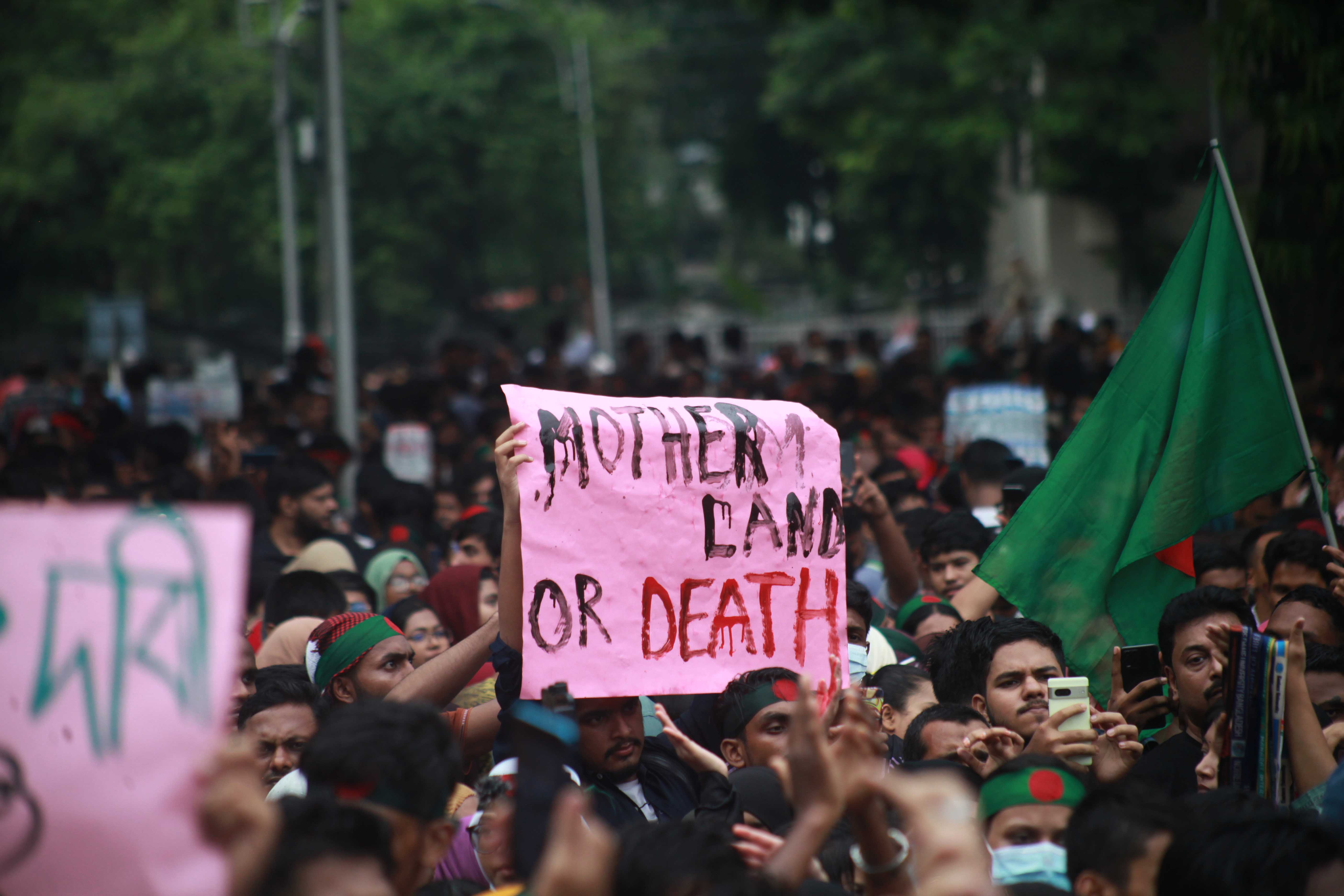
The media and a significant segment of
civil society have upheld the Awami League’s “unquestionable” authority over
the country's history and contemporary identity politics, crafting
justifications for the 2014 one-party election and the 2018 staged election.
As the country faces a critical juncture
today, it is crucial not to overlook the previous instances of the regime's
violence, which did not receive adequate national or international attention.
The current level of brutality might have been mitigated if civil society and intellectuals had actively condemned the regime’s past atrocities against political opponents, carried out through similar dehumanization tactics.
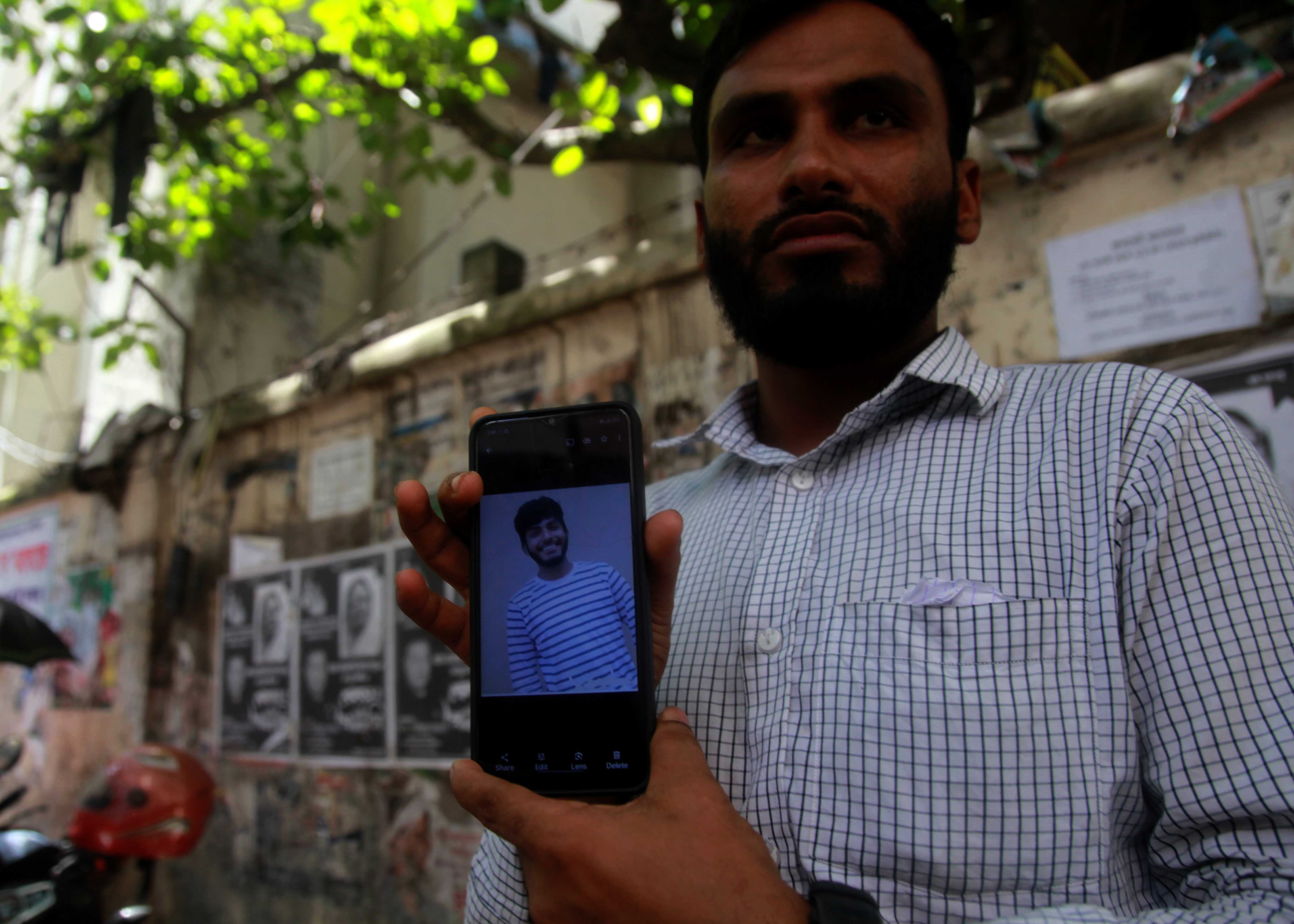
The role of complicit intellectuals and media, who have perpetuated the narrative of “no alternative to Hasina,” has significantly contributed to the regime’s “moral” justification for extrajudicial and judicial killings, arbitrary detentions of opposition activists, and brutal repression of dissent.
If Hasina’s hands are stained with blood, so too are those of those who follow orders without moral integrity and those who create narratives to “morally justify” mass atrocities.
—-
Zunayed Ehsan is a doctoral student an Anthropology at University of Wisconsin-Madison, USA

